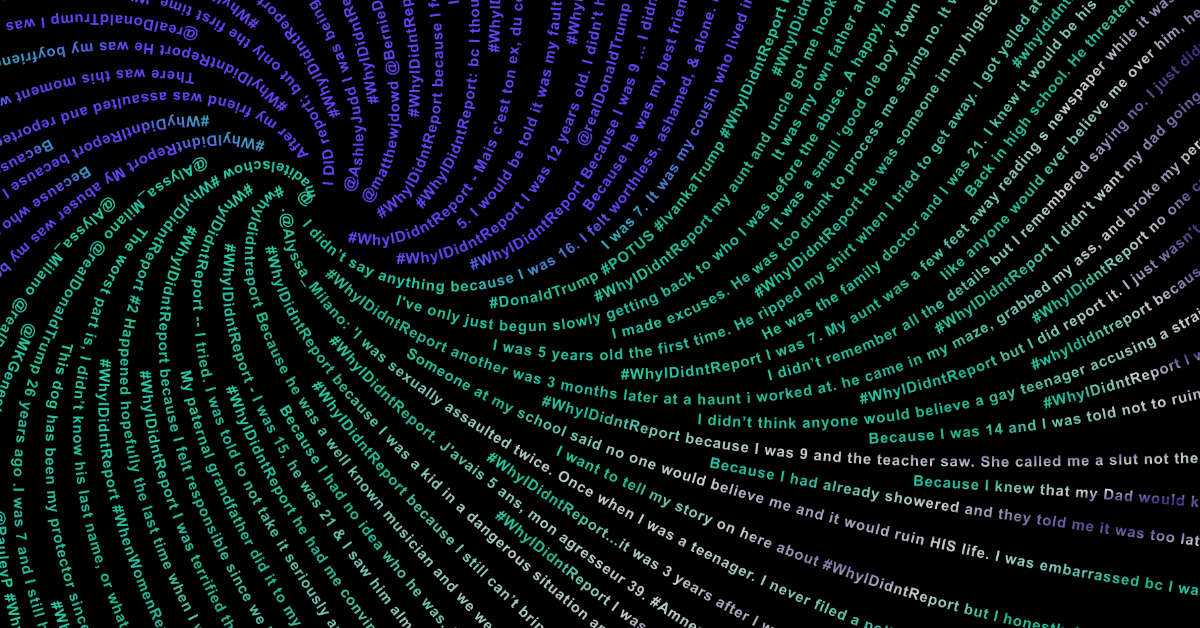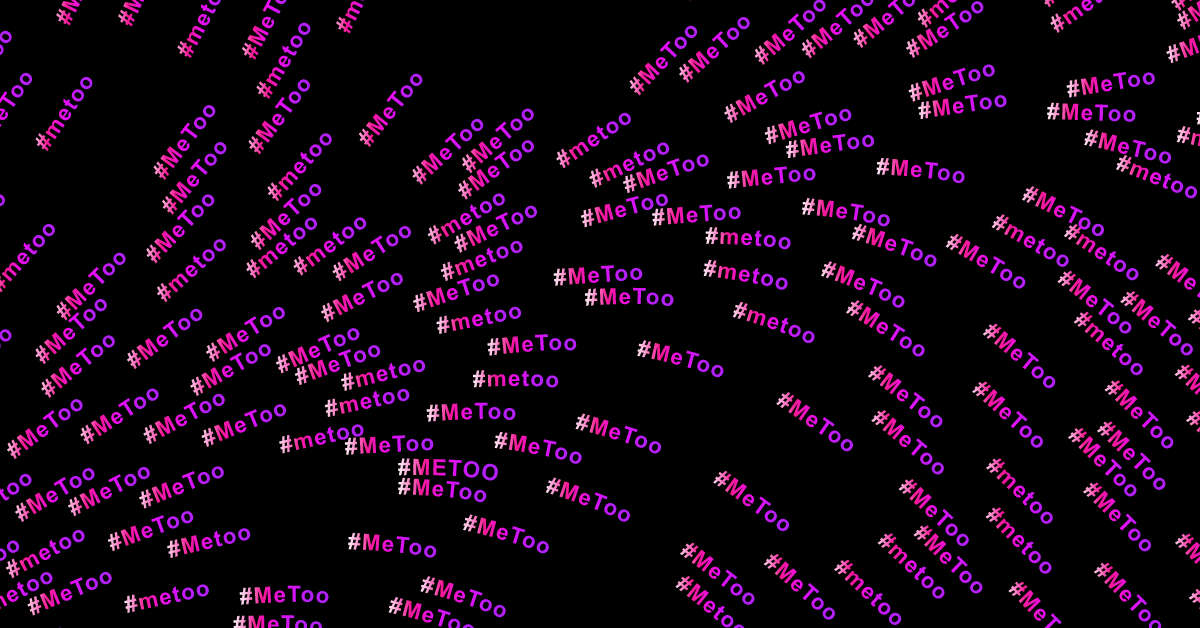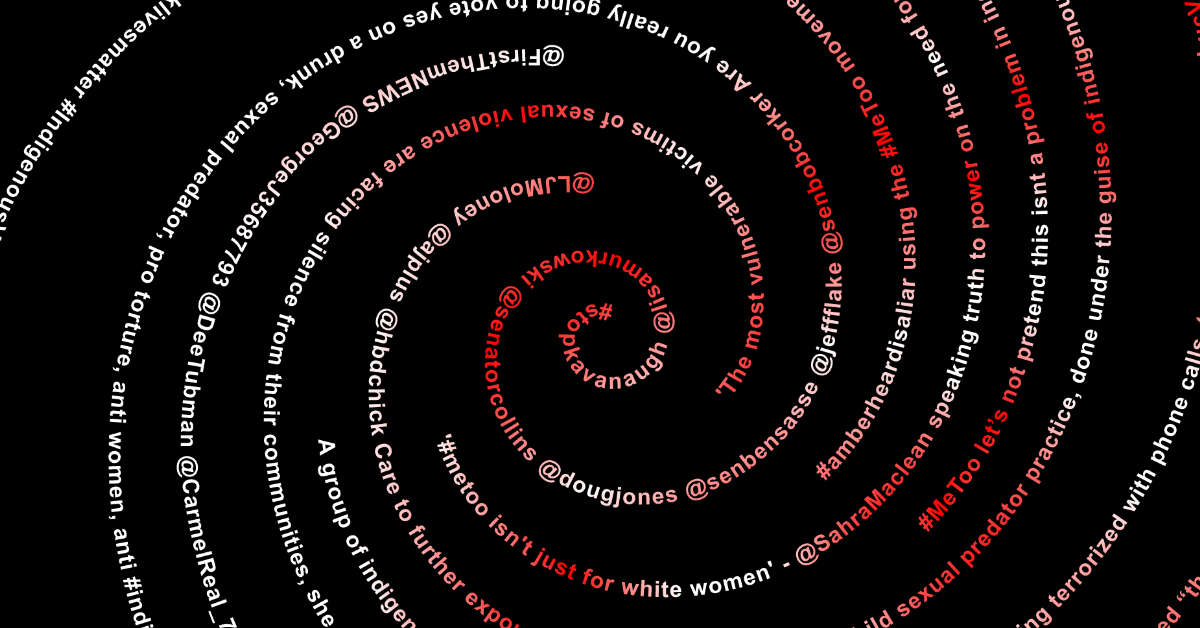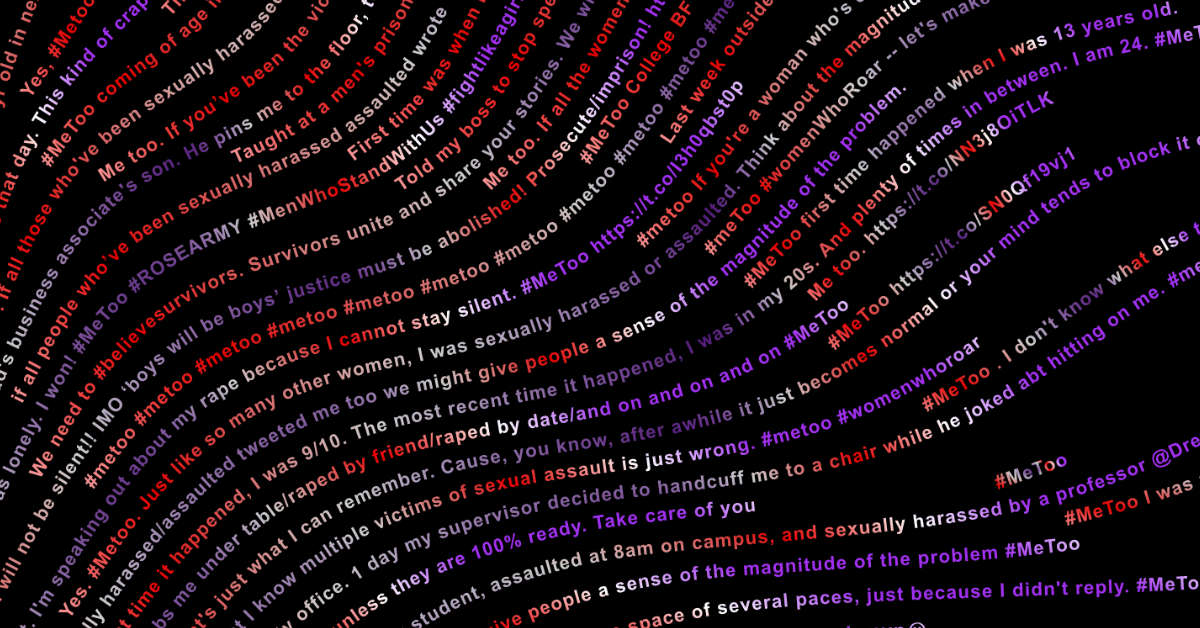#MeToo Anti-Network
#MeToo Anti-Network is a platform that analyzes and looks more closely at the content of tweets under the hashtag #MeToo published on Twitter. The interactive website has an exciting graphic design and provides easy access to this important topic. The website was published on November 22nd, 2021, concerning the International Day for the Elimination of Violence against Women on November 25th.
Cosmologists say that most of the universe is structured by antimatter. We postulate that social media is similarly structured by effects of the unobserved discourse and experience. The backbone of a movement such as #MeToo is not based on the most-liked and most-retweeted, but by the masses of unobserved tweets. Vast numbers of #MeToo tweets that had no retweets and no likes nonetheless constituted acts of quiet testimony or unassuming solidarity. Conventional measures of network science thus fail to capture the true relevance of #MeToo. As Black feminist Patricia Hill Collins says, “Most activism is brought about by ordinary people like ourselves.”
From a random selection of one million #MeToo tweets, they read through all examples with more than 100 retweets. Only eight out of the 894 tweets are actual tweets about sexual assault or experiences around the topic of #MeToo. Of the rest, the vast majority are news media posts and political (trolling) discussions, most of them neglecting the specific issues and survivor voices at the heart of the MeToo movement.
From a distance, the graphics appear as abstract diagrams, similar to Bridget Riley’s work. Each line contains a powerful request for a reordering of power within society. They present an opportunity to engage with each request—from individual people at individual moments within a collective movement that is not over. #MeToo is urgent, #InvisibleNoMore is urgent, #BelieveBlackWomen is urgent, #MMIWG2S is urgent, #SayHerName is urgent. We are still living in a crisis of sexual violence. So you are invited to ditch the networked metrics and listen.
#MeToo Anti-Network is a project by Kim Albrecht with textual and conceptual support from Catherine D’Ignazio, Cole Martin, and Matthew Battles. Supported by metaLAB (at) Harvard, Schlesinger Library, and the Harvard Data Science Initiative.



